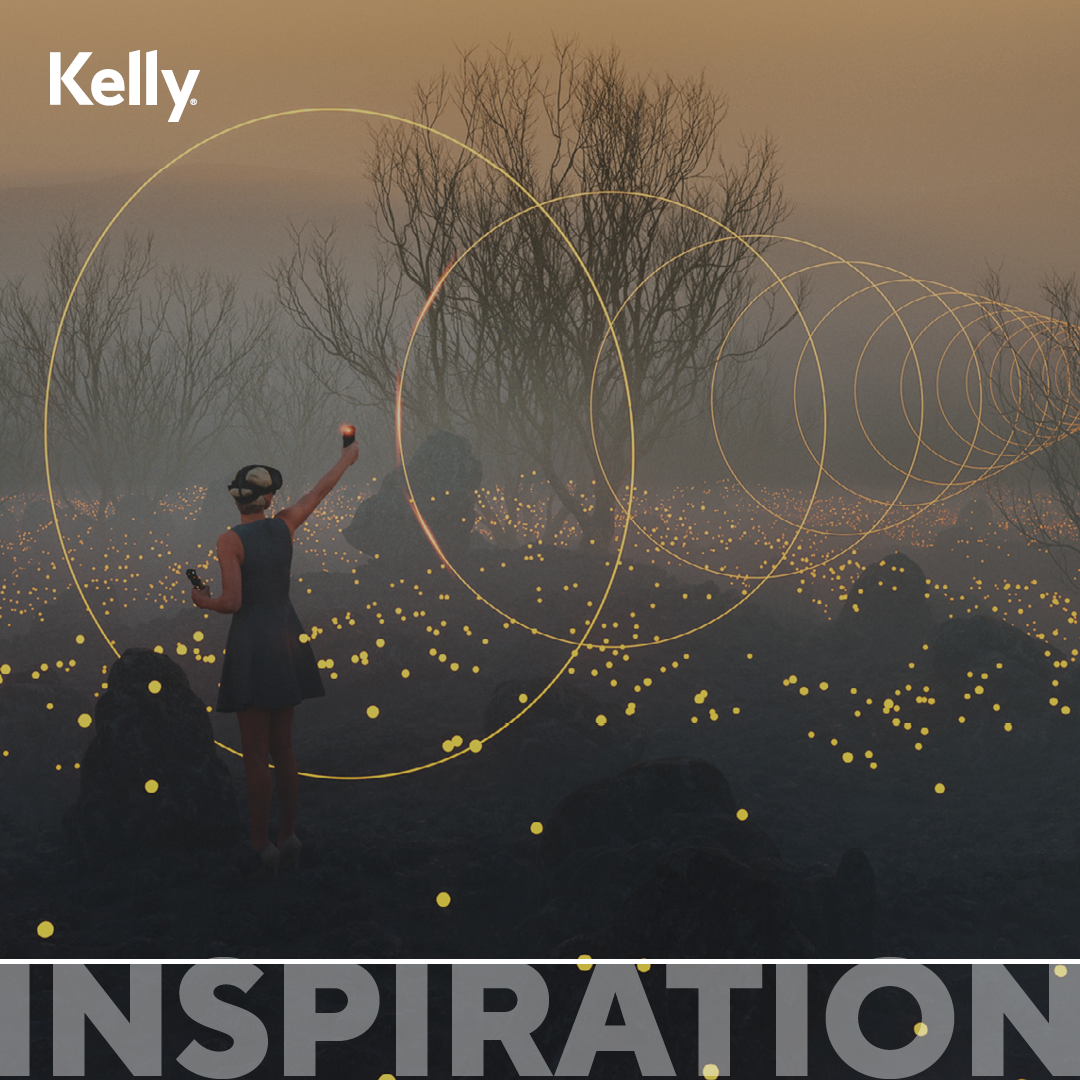How to lead when your team is exhausted

Nov 02, 2021
Let’s face it: 2020 was exhausting. The stress of having to adapt to social distancing and working from home during the spring was followed by weeks of sadness as we saw the toll the pandemic began to take on our country. Then there were the months of suspense as we waited for a vaccine to be developed. And now, we’re still waiting for life to return to some form of normalcy. We still need to wear masks, we still have to social distance — and many of us are still working from home. So, it’s not surprising if after almost 2 years of stress and other wearing emotions, your team is exhausted. In fact, you’re probably drained — but you still need to find a way to lead your people through the remainder of this time, no matter how long it takes.
Tips for leading an exhausted team
Leading your team through what is nothing short of an unprecedented, world-changing event isn’t a walk in the park and there are no hard and fast rules. However, the following tips can help you be more aligned with your employees, which will also make it easier to lead them:
- Be compassionate. People may be experiencing a variety of emotions right now, from fear and sadness to loneliness, frustration, and depression. By making time for your people to express their concerns and listening to them without judgement, you can make them feel more valued.
- Be aware of your team’s mental wellbeing. A survey by Mercer of 270 insurance companies showed that the majority now classify mental health as being as much of a risk as smoking. If you notice that any of your employees are showing signs of being depressed, overly anxious or burnt out, set aside some time to check in with them about their health. If they clearly aren’t doing well, advise them to seek help and reassure them that you support them.
- Energize your team. Determine what — other than the pandemic — is draining your team’s energy and change what you can. For example, if the daily stand-up meetings are taking too long and everyone dreads them, set a cap on how long they can take or consider doing them every other day. If your collaboration software is too complex and time consuming, look for a more efficient alternative. Break down longer projects into smaller sprints and celebrate milestones. Acknowledge individual team members accomplishments in front of the group. Overcome setbacks by analyzing them, seeing what lessons you can take away from the experience and moving on to the next objective.
Be strong now to be prepared later
Companies will be competing to reclaim lost customers and win back lost business — and for many organizations, dealing with the aftermath of the pandemic will be just as intense as dealing with the crisis itself. So, use these tips to prepare yourself and your team for taking advantage of all of the opportunities that are likely to come along.

14 Aug, 2023
Rephrasing the famous song, “Love is in the air”, let’s talk about change is in the air – and everywhere. We grow. We change. Look at your childhood photos. Watch your kid, your nephew, your niece. The change is there, and it’s incredible. Nature is constantly changing. We wait for summer as the time to enjoy outdoor activities and gardening, for a quick visit to the beach, or simply take time to relax and spend time with family, friends and loved ones. We wait for winter (even if we never see snow falling) to decorate the house for the holidays, pack presents for the people we love and unpack our own. The colour of the leaves changes, the weather shifts, and flowers blossom in their time – the landscape is constantly transforming. The world around us is changing. We travel to other countries and learn new things, cultures and languages. We take on new hobbies. We get new skills. After a couple of minor kitchen accidents (sometimes), we can cook delicious dishes and get compliments from family and friends. We transform our bodies at the gym or simply by creating the habit of walking every day. We meet new people, we sometimes fall in love, we build families, we have kids. And if you step back for a second, you realise you might have met your other half by pure accident. But you took a leap of faith into the unknown. We embrace many types of unknown change, except for the one that can change how we live five days a week – to change jobs. “I am too old/too young to change”, “I’m used to this environment; It’s my comfort zone”, “Well, I don’t get any promotion, and what I do doesn’t change the world, but it’s stable”, “I am afraid to ask for more interesting projects. What if my manager fires me?”. We often don’t want to change because that step requires a vision, courage, external support, and a leap of faith into the unknown. Scary? Yes. But also promising. A step into the unknown? Yes. But it can open a new door. Do your inner values marry what you do? Yes, it is essential. There is nothing terrible about staying in your comfort zone. At some stage of your career, staying put can be an excellent decision. But if you feel that you need a change – talk to Kelly. We don’t mind going the extra mile and support your wish to embrace the change. The one which will give meaning to what you do, feel proud, motivated and fulfilled. Ready for changing? We’ll make sure your talent can truly shine.

10 Aug, 2023
You’ve seen these guys before when a circus came to your city or maybe on TV. They walk on a wire at an impressive height, sometimes without insurance, sometimes with a long stick that probes the void right and left. They walk slowly, trying the wire with their toes first, making small steps, their eyes fixed on the small platform where they plan to land soon. They never watch down. They don’t listen to an audience that applauses or gasps in awe. They are concentrated on keeping their balance. To keep balance. Let’s come down from the wire above the arena or stage. Let’s look closer at balance, where it has its roots and the secrets of keeping it. Is it an art? Or is it a skill? Can you learn to keep balance? Or is it an innate skill that only gymnasts, figure skaters, circus artists and ballet dancers are born with? Want to know the secrets of a ballerina that must perform 32 fouettes, a complex ballet movement that requires turning 360 degrees at a high-speed standing on the point of a ballet shoe? First, keeping balance is a skill people must learn for years. In ballet, sport, circus, real life, and… work life. A ballerina is taught to pick one point and to fix her eyes on it when she makes her 32 fouettes, a complex ballet movement that requires turning 360 degrees at high-speed standing on the point of a ballet shoe. She focuses on one thing that keeps her upright. She doesn’t look anywhere else. Gymnasts in some disciplines are constantly trained to feel the bar under their feet. They are prepared to land precisely on the bar after they jump, and the incredible contortions we admire in competitions. But let’s come back to the circus artists we have begun with. Often, they have a long stick in their hands to keep their balance. Is their secret hidden in the stick? And what is the secret? You don’t need to be a ballet dancer, a gymnast, or a circus artist to get the idea of balance. Here are your first two steps in your balance training: 1. Keep your main priorities in mind. And have a clear idea about what is very important for you and where you are ready to compromise. But don’t listen to external opinions that don’t align with your ideals. Forget about the audience’s applause – focus on you. 2. Use some help to stay upright and get to your goals. Imagine your life split on two ends of the helping stick, your job is on one end, and your private life is on another. How comfortable do you feel at your height now with the load on both ends? You need support. We at Kelly pay a lot of attention to balance. The balance between people’s private lives and their jobs. The balance between feeling appreciated and professional goals or between achieving extraordinary results and being inspired. Talk to Kelly today. We are not ballet coaches or sports trainers, but we know much about how important work/life balance is in our lives.

03 Aug, 2023
We often associate certain qualities with individuals who seem to possess a natural talent for creativity. We convince ourselves that painting, singing, or dancing are pursuits reserved for these "real" artists while we remain mere spectators. Creativity? Inspiration? No, it's not about me.




